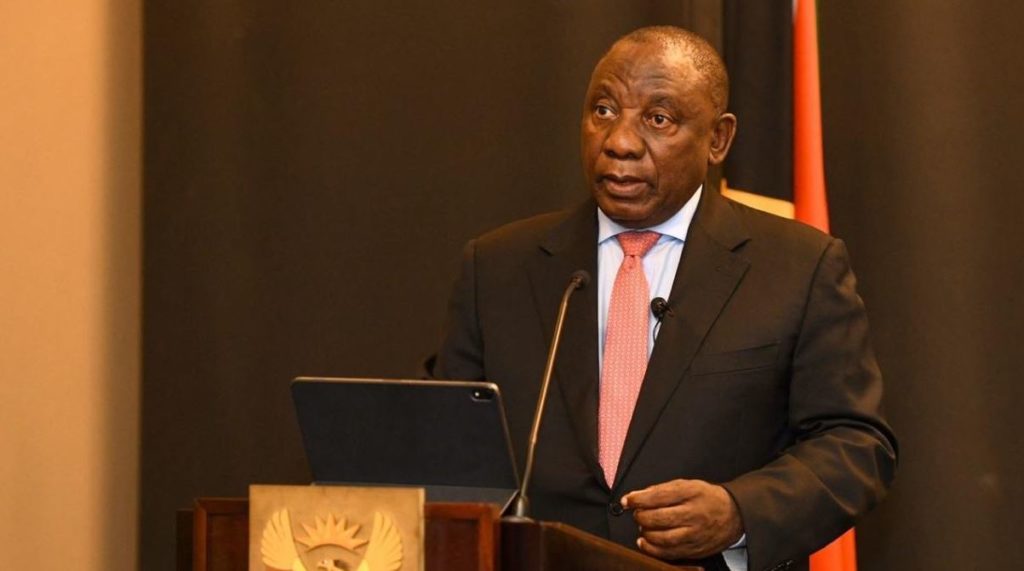SOUTH Africa President Cyril Ramaphosa used the opening of his Human Rights Day speech in De Aar, Northern Cape, yesterday to take a swipe at the EFF shutdown held on Monday.
Addressing the crowds gathered for the celebrations, Ramaphosa said the day was important in the calendar of South Africa.
He said Human Rights Day was the day when the country celebrated “the great progress” that the nation had made in building a democracy founded on human rights for all.
He said South Africans needed to be proud of building a democratic society.
“Even though others would want to diminish this democracy, even though others would want to abuse the rights of others, intimidate them, compel them to participate in a protest, compel them to participate in days when they should not go to work.
“I am happy that the majority of South Africans did not heed the call, but they exercised their rights as South Africans,” said Ramaphosa to applause.
On Monday, the EFF led a “national shutdown” in which they called for the immediate resignation of Ramaphosa. Party president Julius Malema led a crowd of about 2 500 protesters from Church Square in Pretoria, and the march ended at the presidential residence, Mahlamba Ndlopfu.
Outside the house, Malema told the crowds: “The president has betrayed his oath of office [regarding the Phala Phala scandal], and he must vacate his office.”
In a statement following the protest, the ANC criticised the “so-called shutdown”.
“In South Africa, there is no place or tolerance for vigilantism and forceful removal of an incumbent government,” it said.
Seemingly, also criticising the EFF shutdown, Justice and Correctional Services minister Ronald Lamola, who delivered a short speech in De Aar ahead of Ramaphosa, said South Africa was a democratic state guided by the values of human rights, human dignity, and freedom.
“In the 25 years since our democracy and since the Constitution was adopted, we know what works and what does not work. We have also learnt from our mistakes in our pursuit of an equal society; we will then draw from our experience from the past,” he said.
“No minority party can impose its will on the people. You constitute a government by a majority vote, and not (through) bullying and intimidation.”
Lamola added that the government had a duty to protect its citizens and enforce the law.
“The rule of law is the cornerstone of our democracy.” — News24
